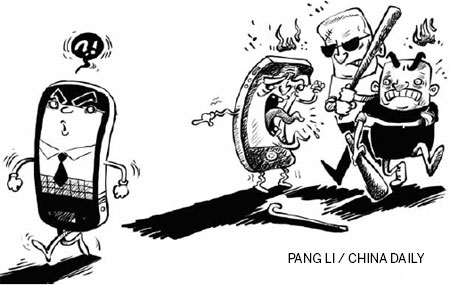Global IT and techno-jingoism

By 2020, the world will have about 50 billion connected electronic devices. We will have our own smartphones and computers, and organizations will have them spread everywhere from offices to tractors and boats to planes, monitoring rivers, air and soil.
To start understanding what this means, think of cellphones. About 1.75 billion sets were sold in 2012, and Samsung and Apple together took up 52 percent of the smartphone market's share in the fourth quarter of last year. But despite that, the big business and long-term dominance of wireless network equipment is with Ericsson -38 percent globally. The sales of Ericsson's cellphone may have dropped to a few percent, but the company has a century of history in infrastructure network, which, unlike cell- phones, cannot be changed according to our whims and fancies.
China's two wireless network equipment companies, Huawei and ZTE, have changed from minor players to global giants in a few years. It is this phenomenon that has prompted some people to use techno-jingoism to thwart the two companies' attempts to invest in the United States and European Union countries. Their rationale is as ridiculous as the corny plots of some old James Bond movies in which Chinese were depicted as the bad guys.















